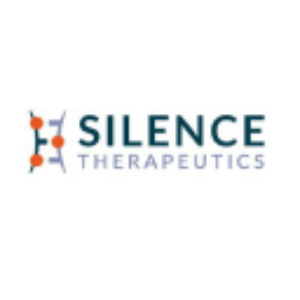Silence Therapeutics Announces Positive Topline 48-Week Data from Phase 2 Study of Zerlasiran in Patients with Elevated Lipoprotein(a)
Study demonstrated highly significant and sustained reductions in Lp(a) to week 48
Data support advancing zerlasiran into phase 3 with 300 mg dose
In the double-blind placebo-controlled treatment period, zerlasiran was administered at 300 mg subcutaneously every 16 or 24 weeks and 450 mg every 24 weeks to patients with a median baseline Lp(a) of approximately 215 nmol/L. These data demonstrated a highly significant reduction from baseline in Lp(a) compared to placebo to 48 weeks (end of treatment and dosing period). Median maximum Lp(a) reduction of approximately
“We are encouraged by the strength of the phase 2 data and emerging competitive profile of zerlasiran, which support an infrequent dosing regimen of at least quarterly with the 300 mg dose,” said Steven Romano, MD, Head of Research and Development at Silence. “We look forward to advancing zerlasiran to phase 3 as a potential treatment for this major unmet need in cardiovascular disease.”
The Company plans to provide full results at a future scientific meeting or publication following completion of the study.
About Silence Therapeutics
Silence Therapeutics is developing a new generation of medicines by harnessing the body's natural mechanism of RNA interference, or RNAi, to inhibit the expression of specific target genes thought to play a role in the pathology of diseases with significant unmet need. Silence's proprietary mRNAi GOLD™ platform can be used to create siRNAs (short interfering RNAs) that precisely target and silence disease-associated genes in the liver, which represents a substantial opportunity. Silence's wholly owned product candidates include zerlasiran designed to address the high and prevalent unmet medical need in reducing cardiovascular risk in people born with elevated levels of lipoprotein(a) and divesiran designed to address rare hematological diseases, including polycythemia vera. Silence also maintains ongoing research and development collaborations with AstraZeneca and Hansoh Pharma, among others. For more information, please visit https://www.silence-therapeutics.com/.
Forward-Looking Statements
This press release contains “forward-looking statements” within the meaning of the Private Securities Litigation Reform Act of 1995. All statements in this press release other than statements of historical facts are “forward-looking statements. These statements may be identified by words such as “aims,” “anticipates,” “believes,” “could,” “estimates,” “expects,” “forecasts,” “goal,” “intends,” “may,” “plans,” “possible,” “potential,” “seeks,” “will” and variations of these words or similar expressions that are intended to identify forward-looking statements, although not all forward-looking statements contain these words. Forward-looking statements in this press release include, but are not limited to, statements regarding: the Company’s clinical development plans of zerlasiran; the assessment of the data from the ALPACAR-360 study of zerlasiran; the efficacy and safety of zerlasiran; the estimated world’s [adult population] who have Lp(a), a key genetic risk factor for cardiovascular disease; the Company’s plans to advance zerlasiran into a Phase 3 registrational program in patients with baseline Lp(a); the potential clinical benefits of zerlasiran; and the Company’s plans to submit additional data from the ALPACAR-360 study for publication at a conference or in a peer-reviewed journal. These forward-looking statements are based on the Company’s expectations and assumptions as of the date of this press release. Each of these forward-looking statements involves risks and uncertainties that could cause the Company’s clinical development programs, future results or performance to differ materially from those expressed or implied by the forward-looking statements. Many factors may cause differences between current expectations and actual results, including: the potential that success in preclinical testing and earlier clinical trials does not ensure that later clinical trials will generate the same results or otherwise provide adequate data to demonstrate the efficacy and safety of a product candidate; the impacts of macroeconomic conditions, including the conflict in
View source version on businesswire.com: https://www.businesswire.com/news/home/20240620544030/en/
Inquiries:
Silence Therapeutics plc
Gem Hopkins, VP, IR and Corporate Communications
ir@silence-therapeutics.com
+1 (646) 637-3208
Source: Silence Therapeutics plc






